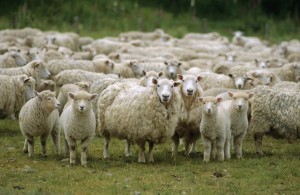 Peter Berkowitz at Hoover Institute argues in Wall Street Journal that higher education is a liberal indoctrinating mechanism. The article centers on a report, available here, that looks at the University of California system.
Peter Berkowitz at Hoover Institute argues in Wall Street Journal that higher education is a liberal indoctrinating mechanism. The article centers on a report, available here, that looks at the University of California system.
There is not much new in the report. It repeats the mantra that core courses in Western Civilization are an essential and missing part of many educational curricula. It also rounds up the disturbing result that has been circulated for some time: it is difficult to assess the value of college educations. Quoting the report quoting studies of the efficacy of college:
We observe no statistically significant gains in critical thinking, complex reasoning, and writing skills for at least 45 percent of the students in our study.
That doesn’t surprise me, but I’m still not altogether certain that critical thinking can actually be taught despite efforts to try to do so in recent decades. More interesting, though, is the attempt by the authors to try to link this skills deficit to progressive political activism:
If graduates cannot even write short declarative sentences competently, that is not surprising when writing courses neglect writing and focus instead on radical politics. When graduates cannot read and extrapolate from books of any difficulty, that is what one would expect when reading lists so often give them books written at the superficial level of journalism rather than more complex works that would challenge them.
Let’s dissect. What do these imagined writing courses look like? Most low-level writing courses emphasize a variety of writing styles, but has the UC system substituted political activism for actual writing instruction? The report is rather vague about that, instead focusing on descriptions of how the professors made political statements and gave little writing advice, as reported by complaining students on a website. And what makes books superficial? Generally an opinion, often politically motivated, that the content is superficial.
Still, the round-up of course titles from sociology, history, and political science courses is intriguing and represents challenging and arguably left-leaning topics. In most cases, those courses will be the first introduction of the students to ideas like Marxism or the interpretation of history through the analysis of power relationships. That strikes me as a valid form of critical thinking but, per the authors’ point, not the only one possible.